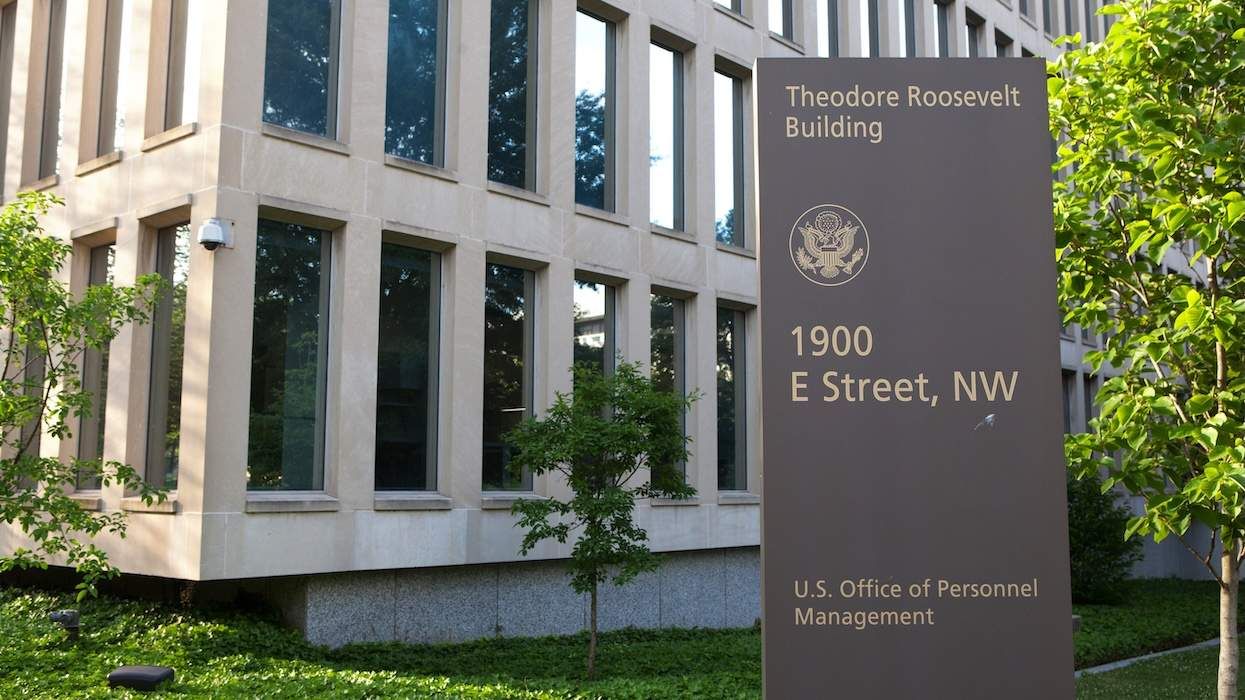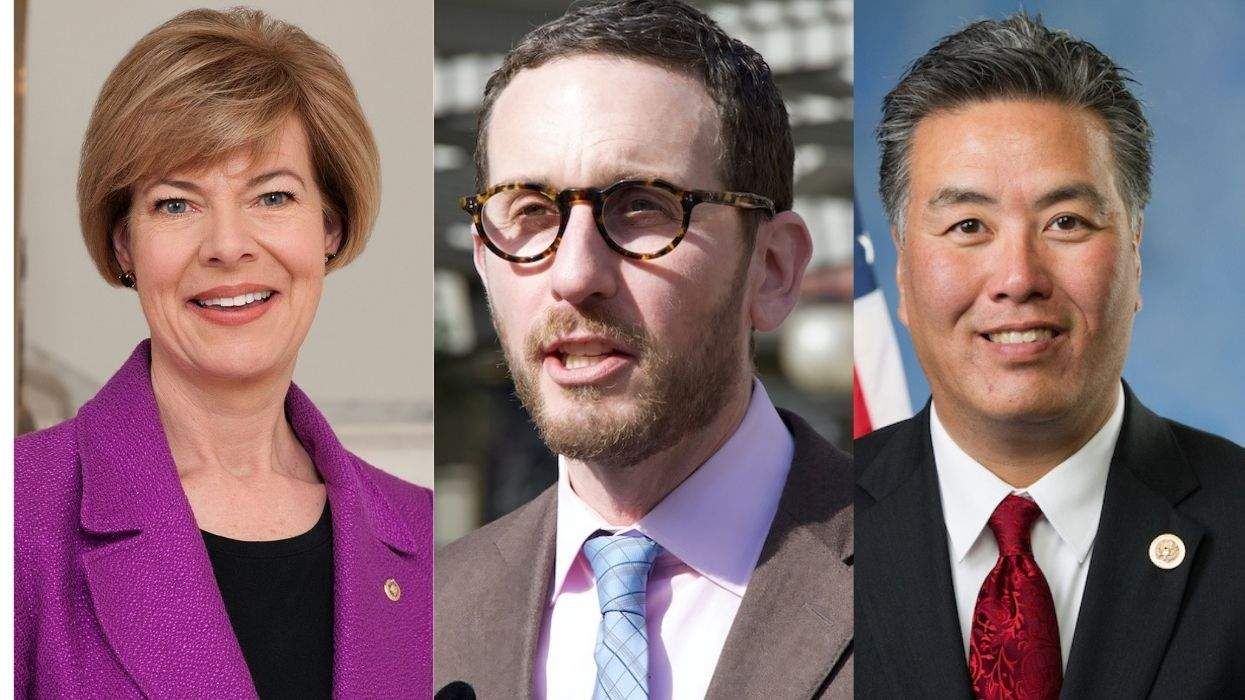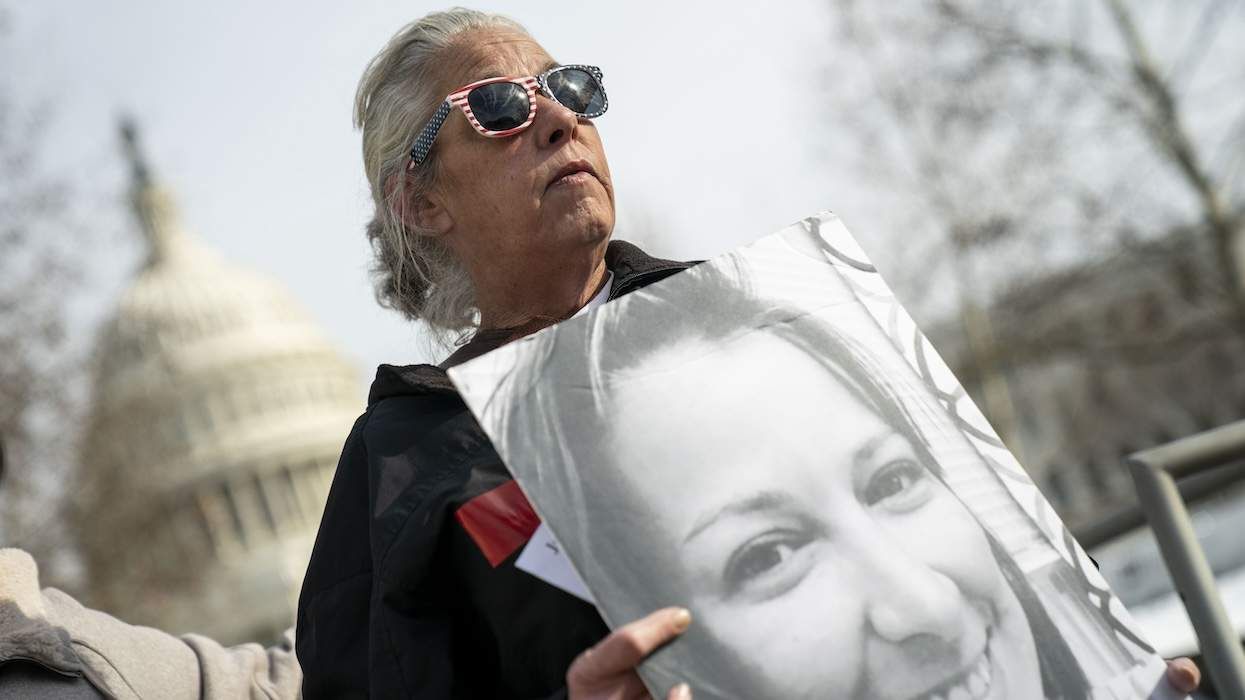A three-judge panel heard marriage equality cases from Louisiana, Mississippi, and Texas at the federal Fifth Circuit Court of Appeals today, and according to initial reports, the court appears poised to strike down marriage bans in all three states.
BuzzFeed's legal editor Chris Geidner, who attended today's hearings at the federal courthouse in New Orleans, reports that "Judges Patrick Higginbotham and James Graves Jr. grew increasingly skeptical of the three states' arguments as the morning wore on, with Judge Jerry Smith at times interjecting to slow down one of his colleagues' lines of questioning in the courtroom."
And, Geidner notes, shortly after the first hearing began at 9 a.m. Central time, attorneys and judges noted that the U.S. Supreme Court was scheduled to meet the same day to consider possibly taking up one or more of the five marriage equality cases pending before it. If it does so, "this could all be moot," Judge Smith reportedly said. The Supreme Court did not announce that it was taking up any marriage cases today, though it could announce additional cases it will hear this term as early as Monday, according to the Washington Blade.
Equality on Trial has an in-depth report on the key arguments made today by marriage equality advocates and attorneys representing each of the three states defending voter-approved bans on same-sex marriage. The LGBT blog called the three-and-a-half hour hearing "somewhat surprising," in that the panel "signaled that it may rule for same-sex couples who are challenging marriage bans in three states."
The first case heard in today's hearing was the Louisiana case, known as Robicheaux v. Caldwell, which holds the distinction of being the first case where a federal judge upheld a state's ban on marriage equality after the U.S. Supreme Court effectively struck down the federal Defense of Marriage Act in June 2013. In today's hearing, the arguments from both sides focused on the legal standard that should be used to review the law and the level of deference the federal judiciary is required to give to states in writing their own laws about marriage.
Lambda Legal's Camilla Taylor, arguing for the same-sex couples seeking the right to marry in Louisiana, told the judges that the existing ban infringes on a fundamental right -- the right to marry -- and is not rationally related to a legitimate state interest, despite the state's claim that endorsing only opposite-sex marriage promotes so-called responsible procreation, or connection between children and their biological mother and father.
Indeed, that supposed rationale -- often offered by attorneys representing states defending bans on same-sex marriage -- was repeatedly scrutinized by Patrick Higginbotham, appointed to the federal bench by Ronald Reagan in 1982. Equality on Trial reports that Higginbotham asked attorneys from several states about whether that "legitimate interest" prompts them to ban marriage by infertile couples.
"One of the most telling comments came from Judge Higginbotham at the end of Louisana's presentation," reports Equality on Trial. "He bluntly said that 'there's no fit' between the same-sex marriage ban and the reasons for the ban offered by the state."
As The Advocate reported yesterday, the randomly selected three-judge panel includes two appointed by Ronald Reagan and one appointed by Barack Obama. In addition to Higginbotham, a generally moderate conservative, the judges hearing today's cases included Judges Jerry Smith, appointed by Reagan, and James Graves, who was appointed by President Obama in 2010, when he became the first African-American judge named to the Fifth Circuit.
Smith, generally considered the most staunchly conservative justice on the panel, did not seem "overtly hostile" to arguments in favor of same-sex marriage, Equality on Trial reports. He did, however, appear to indicate that marriage bans impacting gay and lesbian people should be subject only to the lowest level of judicial scrutiny, known as "rational basis review," which simply requires that a law be rationally related to a legitimate state interest.
Overall, attorneys representing same-sex couples were generally allowed to speak at length, uninterrupted by questions from the judges, Geidner reports. Attorneys for the states, however, "faced a nearly constant stream of skeptical questioning from Higginbotham and Graves. Even Smith, who mostly served as a counterpoint to his colleagues, occasionally raised skeptical questions."
The court could issue a ruling in the case at any time -- and regardless of the outcome, that decision is likely to be appealed by the losing parties to the U.S. Supreme Court.





































































Charlie Kirk DID say stoning gay people was the 'perfect law' — and these other heinous quotes